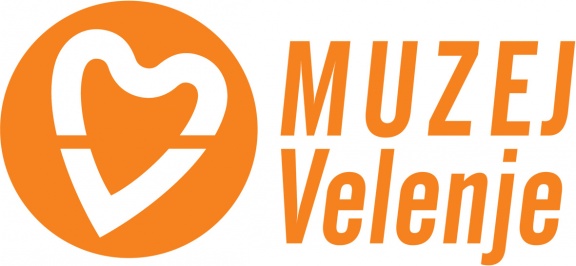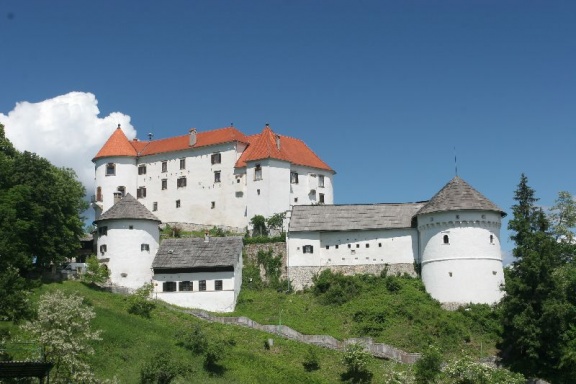Difference between revisions of "Velenje Castle"
(English proofreading & corrections 1) |
(English proofreading & corrections 2 / changed status to PROOFREAD DONE) |
||
| Line 22: | Line 22: | ||
{{Teaser| | {{Teaser| | ||
| − | [[Velenje Castle]] was a strategically important fortress first mentioned in 1270 from which, together with the neighbouring castles of Šalek and Ekenštajn, various owners in the middle ages controlled the routes from the Celjska kotlina basin to Carinthia. Today the castle houses the [[Velenje Museum]] first established in [[established:: 1957]] as the Museum of Slovene Coalmines. The castle is a popular venue for various cultural and music events organised by the "events" department of the [[Velenje Library]]. The [[Velenje Museum]] gives the castle its full functionality filling the premises with eleven museum and gallery collections. The ''Mastodon Collection'' of the prehistoric elephant from Škale near Velenje | + | [[Velenje Castle]] was a strategically important fortress first mentioned in 1270 from which, together with the neighbouring castles of Šalek and Ekenštajn, various owners in the middle ages controlled the routes from the Celjska kotlina basin to Carinthia. Today the castle houses the [[Velenje Museum]] first established in [[established:: 1957]] as the Museum of Slovene Coalmines. The castle is a popular venue for various cultural and music events organised by the "events" department of the [[Velenje Library]]. The [[Velenje Museum]] gives the castle its full functionality filling the premises with eleven museum and gallery collections. The ''Mastodon Collection'' of the prehistoric elephant from Škale near Velenje; ''Saleška Valley between the 10th and 17th Century''; ''Baroque Church Art'' (St. George in Škale); the ''African Collection of František Foit'', showing African vessels, masks and puppets gathered by the Czech academic sculptor during his 25 years in Africa; reconstructions of a shop with mixed goods and an inn from the beginning of 20th century; ''How Velenje Became a Town''; ''Saleška Valley between 1941 and 1945''; as well as permanent art exhibitions of the Slovene painter from Cerknica Lojze Perko, the Ciril Cesar sculpture collection, and the Gorenje Contemporary Art Gallery with approximately 800 works from modernism to contemporary art. Under the castle there is 90-metre plastic ski jump facility, where every summer the International Ski Federation's ski jump Continental Cup is held. |
}} | }} | ||
==Castle History== | ==Castle History== | ||
| − | + | The first documents mention the owners of Velenje Castle (Welen, vest Welen, Wöllan) as the Kunšper gentlemen in 1270. Their relatives, the Ptuj gentlemen bought the castle in 1322, but gave it away as dowry to the Liechtenstein family. The Counts of Celje conquered the castle for a while at the end of the 14th century, but had to return it after the decree of Duke Albert of Habsburg in 1393. The Family Wagen von Wagensberg entirely renovated the construction in the 16th century and the fortress was transformed into a Renaissance residence. Until the beginning of the 17th century, the castle changed many owners, then the Sauer family remained as owners for almost 200 years. In the 19th century it was bought by Karl and Bianca Adamovich. The last owner of the castle, Count Coronnini-Kromberg used it only as a summer residence until 1943 when the Germans drove him out of Velenje after the Italian capitulation. | |
| − | |||
| − | Castle underwent substantial modifications | + | After the Second World War the castle became part of general social property. Social apartments were made there, a lot of furniture was demolished and the building would have fallen into ruins if the Velenje Coalmine had not founded the Museum of Slovene Coalmines there in 1957. The first collections were gradually organised and at the same time an intensive renovation of the building was carried out. Today Velenje Castle is one of the best preserved castles in Slovenia. |
| + | |||
| + | The castle underwent substantial modifications especially during the early-16th century; subsequent improvements over the last few centuries have given it the shape as we see it today – a residential building with vaulted cellars and a beautiful, arcade-enclosed courtyard, surrounded by a five-armed external wall with defence towers that dominate the Velenje landscape. | ||
Revision as of 13:06, 22 March 2010
Castle History
The first documents mention the owners of Velenje Castle (Welen, vest Welen, Wöllan) as the Kunšper gentlemen in 1270. Their relatives, the Ptuj gentlemen bought the castle in 1322, but gave it away as dowry to the Liechtenstein family. The Counts of Celje conquered the castle for a while at the end of the 14th century, but had to return it after the decree of Duke Albert of Habsburg in 1393. The Family Wagen von Wagensberg entirely renovated the construction in the 16th century and the fortress was transformed into a Renaissance residence. Until the beginning of the 17th century, the castle changed many owners, then the Sauer family remained as owners for almost 200 years. In the 19th century it was bought by Karl and Bianca Adamovich. The last owner of the castle, Count Coronnini-Kromberg used it only as a summer residence until 1943 when the Germans drove him out of Velenje after the Italian capitulation.
After the Second World War the castle became part of general social property. Social apartments were made there, a lot of furniture was demolished and the building would have fallen into ruins if the Velenje Coalmine had not founded the Museum of Slovene Coalmines there in 1957. The first collections were gradually organised and at the same time an intensive renovation of the building was carried out. Today Velenje Castle is one of the best preserved castles in Slovenia.
The castle underwent substantial modifications especially during the early-16th century; subsequent improvements over the last few centuries have given it the shape as we see it today – a residential building with vaulted cellars and a beautiful, arcade-enclosed courtyard, surrounded by a five-armed external wall with defence towers that dominate the Velenje landscape.




